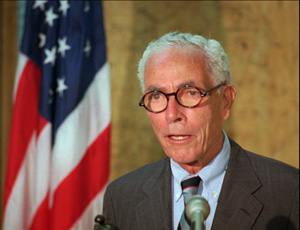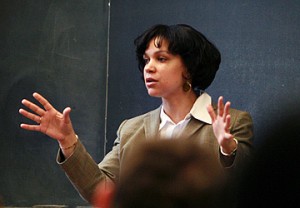Looking Back at 2008: Black Firsts
Today, nearly 400 years after the first enslaved Africans were brought to Virginia and nearly 150 years after the end U.S. chattel slavery, there probably shouldn’t be so many Black firsts. The fact that in 2008 there were still so many academic programs that had never previously graduated any Black students and so man administrative posts that have never before been filed by a person of African descent is a as surprising as it is troubling. Indeed many of the “Black firsts” listed below have expressed this very sentiment. Upon discovering that they are the “first” to accomplish a particular milestone, many of these modern-day pioneers expressed feelings of pride and satisfaction, but mingled with surprise and even sadness. Most were not, after all, setting out to be pioneers. Rather, they were simply pursuing a intellectual passion or career path.
There are two ways to interpret the phenomenon of Black firsts. The more negative analysis is that racism continues to allow only a trickle of African Americans to achieve in certain areas, and only at certain institutions. A more optimistic perspective, which I favor, is that as we move towards the second decade of the 21st century, the obstacles that had previously limited African American progress in specific areas and on particular campuses are falling away so swiftly that this decade and the next will be characterized by a wave of Black firsts, as African Americans move rapidly into those fields and positions that had previously been closed to them.
So here’s a toast to the Black Firsts of 2008! Congratulations on your outstanding achievements, and best wishes for continued success in the future.
- On December 23 Mike Haywood, a former Notre Dame football player and 1986 graduate, became the first Black head coach in Miami University football history and only the sixth Black head football coach in Division I.
- In late December DeWayne Walker became the first Black head coach in the history of New Mexico State University. Walker will be leaving his former post as UCLA’s defensive coordinator. His appointment makes him the seventh Black head football coach in Division I.
- The University of Maryland Eastern Shore became the first historically Black college or university (HBCU) to receive accreditation for its Golf Management Program. The program will be available to business students focusing in hospitality administration or marketing.
- On June 1 Evelynn Hammonds, the University’s senior vice provost for Faculty Development and Diversity and the Barbara Gutmann Rosenkrantz Professor of the History of Science and of African and African American Studies in the Faculty of Arts and Sciences, became the first African American and the first woman appointed to the post of Dean of Harvard College.
- Tamara L. King became the first African American selected to serve as president of the Association for Student Judicial Affairs. Ms. King is a graduate of Penn State University and NYU Law School. She is the director of judicial programs at Washington University in St. Louis.
Posted in Academia, African Americans, Black Colleges, Black History, Black Students, Current Events, Higher Education | 2 Comments »









